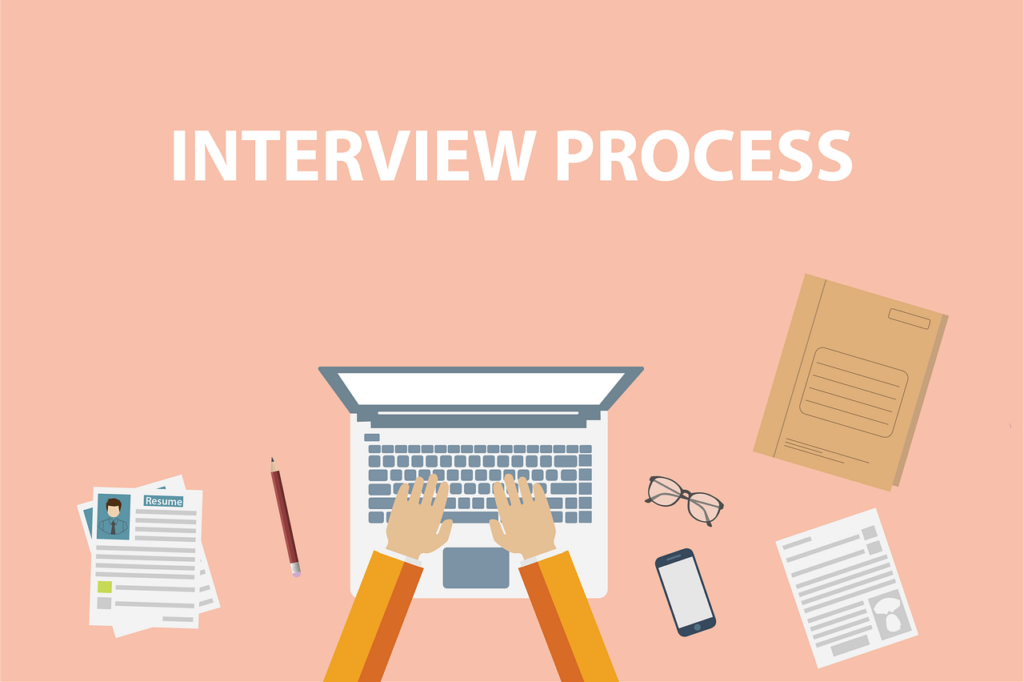The Contemporary Compass for AI-Based Interviews in Customer-Facing Positions.
In the contemporary digital epoch, AI is revolutionizing numerous facets of business undertakings, among which recruitment holds a significant place. Particularly for customer-facing positions where interpersonal proficiencies and a seamless cultural alignment are of paramount importance, AI interviews present an avant-garde methodology for identifying top-notch talents both proficiently and effectively. This contemporary guide delves into how AI interviews are redefining the recruitment panorama for customer-facing roles, the advantages they bestow, and the optimal practices for harnessing this technological marvel.

Insight into AI Interviews
AI interviews leverage cutting-edge technologies such as natural language processing (NLP) and machine learning to conduct and analyze interviews. Candidates engage with an AI system, which is capable of assessing their responses based on an array of criteria, encompassing verbal and non-verbal cues, language proficiency, and emotional intelligence. Here’s the modus operandi of AI interviews typically:
- Pre-selection: AI systems can sift through resumes and cover letters to spot candidates who fulfill the fundamental job prerequisites.
- Standardized Querying: The AI interviewer poses a set of uniform questions, guaranteeing fairness and consistency among all candidates.
- Conduct Analysis: AI examines candidates’ responses, including their tone, facial expressions, and body language, offering insights into their interpersonal skills and cultural fit.
- Feedback and Scoring: The system generates an elaborate report for each candidate, highlighting their strengths and potential areas of concern, along with an overall score.
The Merits of AI Interviews for Customer-Facing Roles
- Efficacy and Swiftness: AI interviews can handle a substantial number of candidates promptly, considerably reducing the time taken for recruitment. This is pivotal for customer-facing roles that frequently demand urgent staffing.
- Impartiality and Fair-mindedness: By eliminating human biases, AI ensures that all candidates are evaluated based on the same benchmarks, fostering diversity and inclusiveness.
- Enhanced Candidate Engagement: AI interviews can be scheduled as per the candidate’s convenience and often furnish immediate feedback, enhancing the overall candidate encounter.
- Deepened Insights: AI can analyze a wide gamut of factors beyond what human interviewers can readily assess, such as subtle language patterns and emotional responses, providing a comprehensive assessment of each candidate.
- Cost Optimization: Automating segments of the recruitment process reduces the requirement for extensive human resources, leading to substantial cost savings.
AI Interviews in Practice: Customer-Facing Roles
Customer-facing roles, like sales representatives, customer service agents, and retail associates, demand a distinctive amalgamation of skills. Competent communication, empathy, and problem-solving capabilities are indispensable. Here’s how AI interviews can be customized for these positions:
- Communication Proficiencies: AI can appraise a candidate’s language proficiency, clarity of speech, and ability to express thoughts lucidly. It can also detect enthusiasm and energy levels, which are crucial for customer interaction.
- Emotional Acumen: By analyzing facial expressions and tone of voice, AI can measure a candidate’s emotional intelligence, which is essential for understanding and addressing customer needs effectively.
- Problem-Solving Capacity: AI systems can simulate customer scenarios and evaluate how candidates respond to challenges, offering insights into their problem-solving skills.
- Cultural Alignment: AI can analyze a candidate’s responses to behavioral questions to determine if their values and work style are in sync with the company culture.

Optimal Approaches for Implementing AI Interviews
To maximize the benefits of AI interviews for customer-facing roles, enterprises should adhere to these best practices:
- Define Explicit Criteria: Clearly delineate the skills and attributes requisite for the role. Ensure that the AI system is programmed to evaluate these criteria effectively.
- Ensure Data Quality Assurance: Utilize diverse and representative data to train the AI system. This aids in minimizing biases and ensures a fair evaluation process.
- Combine AI with Human Supervision: While AI can provide valuable insights, human supervision is critical for interpreting results and making ultimate decisions. A hybrid approach guarantees a balanced and comprehensive assessment.
- Maintain Transparency and Openness: Inform candidates about the utilization of AI in the hiring process and how their data will be employed. Transparency builds trust and ensures candidates feel at ease with the process.
- Regularly Upgrade the System: Continuously monitor and update the AI system to ensure its accuracy and efficacy. Incorporate feedback from hiring managers and candidates to enhance the process.
The Prospects of AI Interviews
As AI technology keeps evolving, its influence in recruitment is expected to broaden. Here are some emerging tendencies and future orientations for AI interviews in customer-facing roles:
- Intensified Personalization: Future AI systems will offer more highly personalized appraisals, customizing questions and scenarios for individual candidates based on their backgrounds and experiences.
- Integration with Other Technological Streams: Fusing AI interviews with other technologies, such as virtual reality (VR) or augmented reality (AR), could create immersive interview experiences, providing deeper insights into candidates’ capabilities.
- Real-Time Adaptability: Advanced AI systems will be capable of adapting instantaneously during interviews, modifying questions based on candidates’ responses to delve deeper into specific domains.
- Wider Adoption: As AI becomes more accessible and cost-effective, even small and medium-sized enterprises (SMEs) will be able to leverage AI interviews, democratizing access to advanced recruitment tools.
Conclusion
AI interviews are revolutionizing the recruitment terrain, presenting a potent means for identifying exceptional talents in customer-facing positions. By integrating efficiency, objectivity, and profound insights, AI interviews assist companies in building robust and competent teams that can drive outstanding customer experiences. Nevertheless, it’s essential to strike a balance between technological advancements and ethical considerations along with human supervision. As AI technology continues to evolve, its potential to transform recruitment will only escalate, making it an indispensable asset in the modern recruitment toolkit. Embracing AI interviews today paves the way for a more efficient, fair, and effective recruitment process in the future.
Vhire.ai is an advanced asynchronous video interview software designed for automated interviewing and candidate assessment. It offers a range of powerful features to streamline the recruitment process:
- Asynchronous Video Interviews: Candidates can record their responses at their convenience, allowing you to review them at a time that suits you.
- Automatic Candidate Screening: Our system evaluates and ranks candidates, highlighting the most promising applicants.
- Multi-Dimensional Scoring: Receive detailed, explainable scores for each candidate, complete with justifications for each rating.
- Automatic Resume Parsing: Extract key information from resumes and apply tags for quick and efficient filtering.
- AI-Generated Questions: Ensure a comprehensive assessment with AI-generated interview questions tailored to each specific role.



